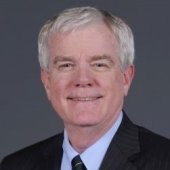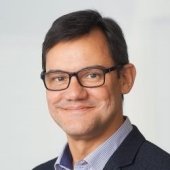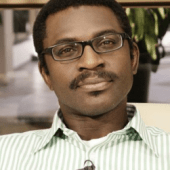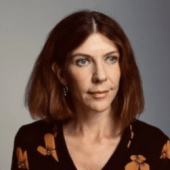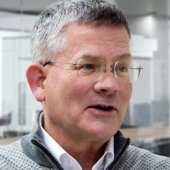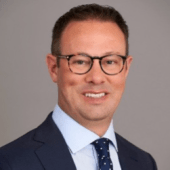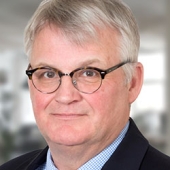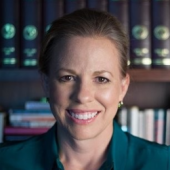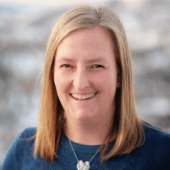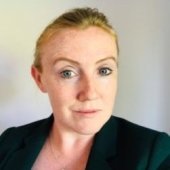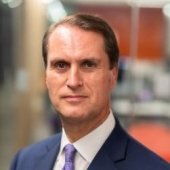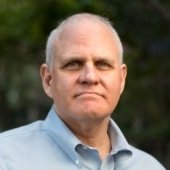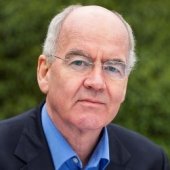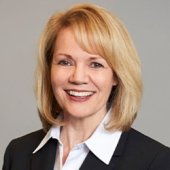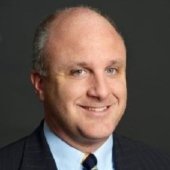Protiviti, ING, Closed Loop Partners panel explores relationship between sustainability, finance
IN BRIEF
- In just five years’ time we’ve seen an exponential increase in terms of sustainable finance, and it really is becoming more mainstream.
- Accounting doesn't drive the agenda, of course, but think about if we get required accounting standards [on ESG]. That doesn't guarantee anything, but it really has the potential to move the needle; it creates consistency, standardization, accuracy and ultimately, confidence.
- If you want to see where we’re going, keep your eyes and ears open for the forward-looking CEOs who aren’t necessarily talking about what Wall Street is talking about but rather what their customers are talking about.
Sustainability, increasingly referred to as ESG (environmental, social and governance), has emerged as a top business priority even as sustainable, or impact, investing has moved into the mainstream. In late September, Protiviti, ING and the Museum of American Finance hosted a panel discussion of industry experts for more than 100 attendees at ING headquarters in New York. Amrith Ramkumar, climate finance reporter for The Wall Street Journal, moderated a discussion titled “Going Green: Exploring the Relationship of Sustainability and Finance” among Ana Carolina Oliveira, Head of Sustainable Finance for ING; Ron Gonen, Founder and CEO of Closed Loop Partners; and Robert Hirth, Senior Managing Director at Protiviti and former Co-Vice Chair of the Sustainability Accounting Standards Board. Excerpts of the panel discussion follow.
Ramkumar: There’s been a lot of talk and positive momentum lately around green finance, and specifically around the Inflation Reduction Act. Are you encouraged by what you're seeing?
Oliveira: Yes, I am. Last year was a record year by any measure from a sustainable finance standpoint. Coming off that record year [ING] set ambitious goals and targets for 2022. The year started with a lot of macroeconomic challenges and then a geopolitical one—the Russian invasion of Ukraine. So that has shifted the attention from climate and COVID to what became an energy and humanitarian crisis. While there has been some reduction in terms of the volume growth from last year, sustainable finance—remarkably—is still doing well. Until 2017, corporate bond issuance, as it relates to ESG, was about 1% to 2% of the overall market—so very minor. In 2022, it’s about 13%. So, in just five years’ time we’ve seen an exponential increase in terms of sustainable finance, and it really is becoming more mainstream. So yes, I am encouraged.
Hirth: I primarily work with the reporters of ESG information, and I would say that it's continued to be very active. There are some outstanding sustainability stories in the reports in every industry. Some 90% of the S&P 500 already have some form of ESG reporting; and, at the same time, we've also seen a very significant number of companies reporting for the first time. What's interesting about their first reporting is this: Because they've looked at those leading companies, their first few reports are actually pretty good. So, it's been a really busy time, and we expect it to continue to be.
Gonen: We often like to say sustainability equals clean energy and clean energy equals sustainability, but in fact there's a lot of things going on in the sustainability space that have nothing to do with clean energy. One example is Mycelium, which is mushrooms. There's been a major recognition in the fashion apparel industry that mushrooms could effectively replace leather, which is a multi-billion-dollar industry that is heavily polluting. These types of developments often fly under the radar, but I think investors are looking at these under-the-radar opportunities.
13%↑
UNTIL 2017, CORPORATE BOND ISSUANCE, AS IT RELATES TO ESG, WAS ABOUT 1% TO 2% OF THE OVERALL MARKET. IN 2022, IT’S ABOUT 13%.
– Ana Carolina Oliveira
Ramkumar: Ron, that’s an excellent example of a new opportunity, and I think it'll be interesting to see how a lot of U.S. companies invest their money, whether it's oil, gas, fossil fuels, or clean energy. I think that’s nice segue to the Inflation Reduction Act, which I think a lot of people are excited about. Can each of you give me one specific example of something coming out of the IRA that you're excited about?
Gonen: I would say I'm most excited for the tax equity and tax credit opportunities around anaerobic digestion. Anaerobic digestion converts food waste into clean energy. We have this massive source of energy that we call “food waste” and today we pay to have a truck filled with a lot of diesel gasoline transport the waste to a faraway hole in the ground and then we pay to put that potential energy source into a hole in the ground and we cover it up. When instead, we could locally take it to an anaerobic digester and convert it to clean energy. I think the federal government recognizing that as a major opportunity is one of the hidden gems of the Inflation Reduction Act.
Hirth: We talked about sustainable finance, and I really don’t know if I'm excited about it, but the new 15% alternative minimum tax will be the way that a lot of this gets financed. I'm interested to see the actual effect of this because it's quite measurable. Some companies might not like that, but understand, another piece of ESG is actually paying your fair amount of taxes because your business and your people are using the infrastructure that we all need. That may not be all that popular here, but outside the United States, there's a very different view of companies paying their fair share.
Oliveira: I would probably say just a general awareness of all the incentives and milestones around new technologies. That will make my life easier because when I talk to companies about decarbonization and net-zero targets, many of them have no idea how they are going to get there. And the way to get there is to create intermediate milestones and pathways. The conversation timelines used to be about the 2030s and beyond, but the Inflation Reduction Act has helped push that timeline up to 2025 or even earlier for some. I’m having conversations right now that I didn’t expect to be having, and I think the IRA is helping to expedite the entire process.
Ramkumar: I do love all the optimism, but I must throw a little pessimism in now. We had COP26 (The 2021 United Nations Climate Change Conference) and we’ve got lots of big problems to deal with… climate models show over the next decade we are going to blow past 1.5 degrees Celsius in terms of global warming, we have the energy crisis and a water crisis and a food crisis. So, what do you see in the future?
Oliveira: At COP26, a lot of promises were made to cut emissions and then life happened, and we probably will have higher emissions this year than last. So, through that lens, I think it's hard to be optimistic. But I do think the private sector is stepping up. Recently, many companies in the steel industry, for instance, got together and decided they needed to find a way to decarbonize. I'm hoping we see more of this. I would love to see the private sector take on really big challenges, such as biodiversity and deforestation. I’m from Brazil and, unfortunately, it has been a terrible year when it comes to protecting the forests and taking care of the environmental agenda. I am very worried about the water crisis there. I see a lot more happening on the emission side but not as much on water.
There's been a major recognition in the fashion apparel industry that mushrooms could effectively replace leather, which is a multi-billion-dollar industry that is heavily polluting. These types of developments often fly under the radar, but I think investors are looking at these under-the-radar opportunities.
– Ron Gonen
Hirth: At COP26, the IFRS Foundation made the announcement that it’s creating a new sister board called the ISSB, the International Sustainability Standards Board. IFRS has 140 jurisdictions that follow those financial accounting principles, and the idea is that those 140 jurisdictions will voluntarily adopt the ISSB standards. Even though I'm not on that board anymore, I do know that—to Carolyn's point—biodiversity and human rights are two topics that the ISSB is focused on as they continue to develop these standards. Accounting doesn't drive the world agenda, of course, but think about if we actually get required accounting standards on these things, and there's a level of assurance equivalent to financial statement assurance. That doesn't guarantee anything, but it really has the potential to move the needle; it creates consistency, standardization, accuracy and, ultimately, confidence.
Gonen: One thing I‘d like to see more of at COP is collaboration among countries. The U.S., the EU, some individual countries in the UN and some other countries around the world have passed very smart regulation, oftentimes in partnership with business, on how to either reduce waste or reduce emissions. And right now, it’s this interesting patchwork of very good ideas. If COP could look at that patchwork of regulation and maybe highlight how the French did this or the British did that and the Germans did this, the United States did that, etc., it could lead to cooperation and maybe even some treaties where the best regulations could be adopted across regions.
Ramkumar: We're starting to see some companies wanting to move beyond net zero and achieve real zero and reduce their Scope 1 and 2 emissions. And many other companies are talking about carbon offsets as a possible solution. Where do you all stand on offsets and real zero as a possibility for the future?
Oliveira: I would say it’s one step at a time. The offset, if necessary, should be secondary to a real effort of climate mitigation. A lot of sectors still don’t have the benchmarks to determine real zero; they’re just not out there yet. But yes, interest in carbon offsets is growing, and I think that’s a positive, but hopefully the standards will catch up so we can better determine what’s a good offset and what is not. But again, the real goal should be climate mitigation, not carbon offsets.
Hirth: Some people look at offsets as cheating but, hey, at least they’re making some progress, right? There’s been talk that offsets will be what we’ll eventually call Scope 4. Interestingly, in the proposed SEC rule, the emissions table would be without offsets. But with offsets, at least a company is doing something positive, but as Ana Carolina said, that shouldn’t be the end goal.
ACCOUNTING DOESN'T DRIVE THE WORLD AGENDA [but it] REALLY HAS THE POTENTIAL TO MOVE THE NEEDLE; IT CREATES CONSISTENCY, STANDARDIZATION, ACCURACY AND, ULTIMATELY, CONFIDENCE.
– Bob Hirth
Gonen: I think there's a huge opportunity in the energy efficiency and conservation space. We all get excited about new technologies and there’re huge investment opportunities but when we think about the amount of energy we're using today on a per-capita basis and the amount of renewable energy required to maintain that, it's a high bar to reach. If we bring down the amount of energy we need and continue with a similar lifestyle that to what have today, suddenly we get closer to being able to generate the amount we need. Here’s an example. Right now, we’re in a class A office building in Manhattan. I work in one, too. Every once in a while, over a holiday weekend in the summer, I’ll go in to get some work done, and it’s nice and chill in the office. This is an office meant for 1,000 people working during the week, but on a summer holiday weekend there’s essentially no one there. This summer, I went into the office in a similar scenario and suddenly it’s pretty warm. For whatever reason, the building management decided they’re not going to air condition or heat the whole building at those times. The amount of energy saved for those 10 days a year or so is huge.
Ramkumar: That's an interesting point. We talk about big companies and greenwashing, and rightly so, but it's a good reminder that we all have things we can do in our own lives that can make an impact.
Gonen: But it is big companies, too. Look at what Paul Polman was able to accomplish at Unilever, where he had a vision for making that business a leader in sustainability. At the time he wasn’t rewarded for that; the market said he's just not in line with the other CEOs. Fast-forward 10 years, and he outperformed everybody in his industry. People criticized him when Unilever bought Seventh Generation. People didn’t understand it and thought he overpaid for it, but now it looks like a brilliant acquisition. If you want to see where we’re going, keep your eyes and ears open for these forward-looking CEOs that aren’t necessarily talking about what Wall Street is talking about but rather what their customers are talking about. That being said, I think it's a very difficult and confusing time to be a public company CEO, because you can try to be forward-thinking and progressive and align with your employees and your customers values, and at the same time, publicly run afoul of the state government where you're headquartered. We'll get through this period, but it’s a difficult time, for sure.
keep your eyes and ears open for these forward-looking CEOs that aren’t necessarily talking about what Wall Street is talking about but rather what their customers are talking about.
– Ron Gonen
Amrith Ramkumar is a climate finance reporter for The Wall Street Journal in New York, where he covers how investors are financing the transition to clean energy. He was previously a markets reporter covering SPACs and commodities and graduated from Duke University in 2017. Amrith was born and raised in Norman, Oklahoma and is a huge sports fan.
Ana Carolina Oliveira heads ING’s Sustainable Finance team covering the Americas region. She works with ING's clients, providing structuring and advisory of sustainable finance solutions to support them in accelerating their sustainability transition. Ana Carolina also plays an integral role in supporting ING’s Terra approach, a commitment to steer its €600 billion lending book in line with the goals of the Paris Agreement to keep global warming to well-below two degrees.
Ron is the Founder and CEO of Closed Loop Partners, a New York-based investment firm comprised of venture capital, growth equity, private equity, catalytic capital and an innovation center focused on building the circular economy. Investors include many of the world’s largest retailers and consumer goods companies as well as family offices interested in investments that provide strong financial returns and tangible social impact. Prior to Closed Loop Partners, Ron was the Deputy Commissioner of Sanitation, Recycling and Sustainability in New York City in the Bloomberg administration.
Bob Hirth is a Senior Managing Director at Protiviti and provides a broad array of senior leadership and counsel in the areas of internal control, internal audit, people development, client relationships and revenue growth. Bob was one of the founding managing directors of Protiviti at its inception in 2002. He was appointed to the standard setting board of the Sustainability Accounting Standards Board (SASB) upon its formation in 2017 and serves as a vice chair of the board. He currently heads SASB’s Technology and Communications sector committee.







